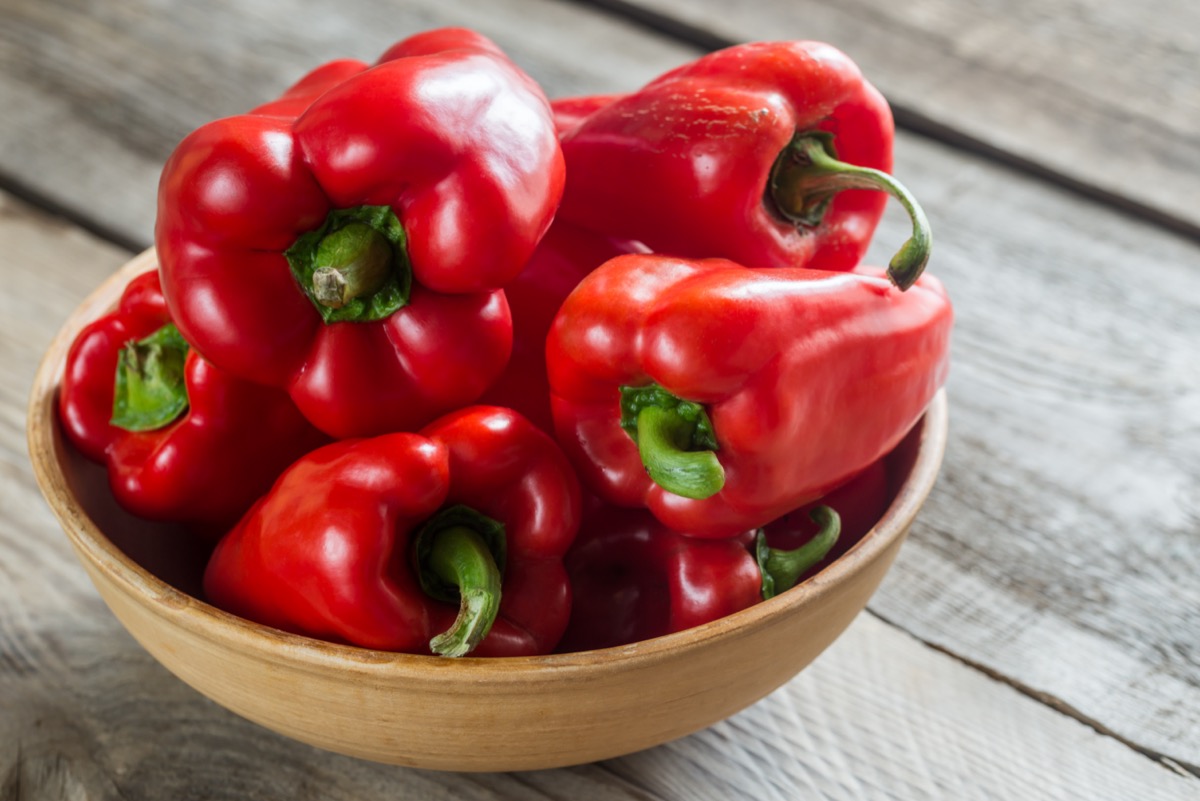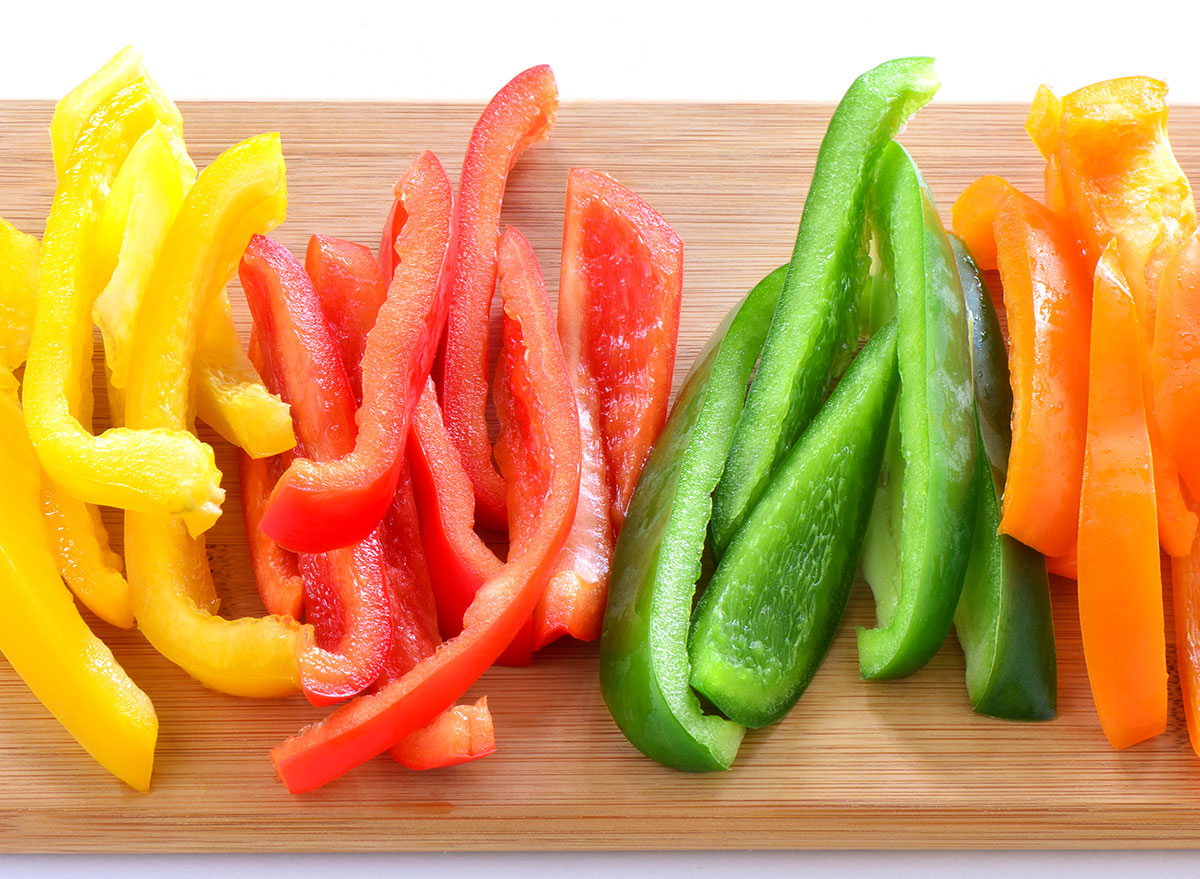Whether you're sautéing them to throw on a rice bowl, or making this low-carb pizza recipe, bell peppers are a delicious part of many different kinds of meals. Bell peppers also make for great snacks to take on the go and are known for being an excellent source of fiber and other important nutrients.
Your brain may be sharper.

Bell peppers are loaded with vitamin C. In fact, bell peppers actually have more vitamin C than oranges! Something that many people don't know about vitamin C is that aside from its health benefits like building immunity and managing high blood pressure, it has actually been proven to help cognitive function as we age.
One study review published in BMC Psychiatry was able to make a link between vitamin C deficiency and feelings of depression and slower cognitive function. While researchers claim that further research should take place, there have been multiple studies to show the links between vitamin C and cognitive function over the past 20 years—including this cohort study found in the American Journal of Epidemiology, which proved that vitamin C can protect against mild to severe cognitive impairment.
You can boost your immunity.

In a time when COVID-19 is still prevalent in our world, taking care of our immunity is more important than ever. Bell peppers contain a solid amount of vitamin A, which is known to help with our immune system strength.
Most researchers have agreed that adequate amounts of vitamin A can protect us from infectious diseases, but the reason behind this is still up for debate. According to the Annual Review of Nutrition, it could be because vitamin A deficiency hinders our ability to absorb nutrients through the regeneration of certain intestinal barriers after infection. Vitamin A is also required for the building of important cells that fight against infectious diseases.
They may boost your mood.

Another benefit that some people may not expect from foods like bell peppers is that they can actually boost your mood. Bell peppers are high in vitamin B6, which has been known to improve mood and reduce the risk of depression. According to a study published in the Journal of Inherited Metabolic Disease, vitamin B6 can be used as a supplement to help with depression symptoms. However, it's important to note that we can't get large enough levels of B6 in just bell peppers alone, so it should never be used as a means of treating depression.
They may help reduce body fat.

Bell peppers, specifically red bell peppers, contain a natural compound called capsanthin. This compound creates a red color in food and can also be found in cayenne peppers, chiles, and paprika. Although more research still needs to be done on this topic, scientists are beginning to discover that the consumption of capsanthin can help with inflammation and weight loss.
One study found in Food Research International used mice to study the effects of capsanthin on weight loss. The mice in the study not only experienced a loss in body weight, but their levels of glucose and cholesterol significantly decreased.
They may lower your blood pressure.

Bell peppers contain a natural color pigment called quercetin. This pigment is part of a group of flavonoids, and it acts as a powerful antioxidant in the body. Quercetin has been linked to many different health benefits, including anti-inflammation, fighting cancer cells, reducing the risk of heart disease, and lowering blood pressure.
A study from the British Journal of Pharmacology experimented with giving rats different levels of quercetin over a five-week period. The rats experienced a decrease in blood pressure by an average of about 23%. More research needs to be done on this topic, but quercetin from bell peppers is proving to be a healthy addition to our diets!
No comments:
Post a Comment